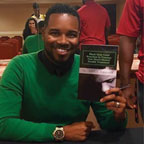
 Ethiopian Jews in Israel fight for acceptance
Ethiopian Jews in Israel fight for acceptance
By Lekan Oguntoyinbo, NNPA Columnist
Considerable fanfare greeted Israel’s airlift of tens of thousands of Ethiopian Jews in the 1980s and 1990s. The Israeli government sprung them out of their ancestral east African homeland in the midst of a famine that led to the deaths of hundreds of thousands of people.
To many, it was a powerful affirmation of Israel’s “Law of Return”, which grants automatic citizenship to all Jews. It sent a strong signal that Israel, a nation of immigrants and children of immigrants from more than 100 countries, was serious about its intent to create a comfortable homeland for Jews from around the world irrespective of skin color.
But for most of these Black arrivals and their children life in their new homeland has been anything but comfortable. Israel has been less than welcoming to it Black citizens.
Israelis of Ethiopian ancestry number about 135,000 or about 2 percent of the population. But they have higher rates of poverty, unemployment, incarceration, divorce and suicide. As the New York Times reported, Ethiopian-Israeli youth are three times as likely to be held in detention facilities. Like blacks in America, Ethiopian Israelis are the lepers of society. They routinely encounter discrimination, police harassment and racist slights.
Which is why the recent demonstrations by Ethiopian-Israelis should have come as little surprise.
For several days earlier this month, in scenes reminiscent of Baltimore and Ferguson, Ethiopian Israelis took to the streets after a video of a uniformed Ethiopian-Israeli soldier being beaten by police officers in what was an apparently unprovoked attack surfaced online.
For several days, demonstrators threw bottles and rocks, shut down a major highway and overturned at least one police squad car. Scores of people, including more than 50 police officers, were injured and dozens of demonstrators were arrested.
Israeli President Reuven Rivlin hit the nail on the head when he said the unrest revealed “an open, bleeding wound in the heart of Israeli society.”
It is a wound that, if left untreated, could turn into a sore that infects the rest of the body.
The demonstrations were just another in a long line of grievances by members of the Ethiopian community. Despite the kudos accorded Israel upon the arrival of the Ethiopians 30 years ago, the decision to bring them into their new home was not without controversy.
For years debates raged over the authenticity of their Jewishness before the government consented to bring them into the country. Ethiopian Jews, also known as Beta Israel, believe they are the lost tribe of Dan. Their roots in Ethiopia go back thousands of years. For more than a thousand years they were cut off from the rest of the Jewish world. Some scholars of Judaic studies have asserted that their religious practices are more authentic than those of their European brethren.
Yet, when the Ethiopians first started arriving in Israel in 1984, many of the nation’s top rabbis questioned their Jewishness and in many instances demanded that they “convert” before signing off on their weddings.
In 1996, Ethiopian Jews demonstrated after learning that health authorities had thrown out their donated blood over fears or suspicions of HIV.
Some landlords refused to rent to Ethiopian Jews. And there have been reports of schools restricting the enrollment of their children.
In 2013, Israel’s health ministry all but admitted that doctors “may” have injected newly arrived Ethiopian Jewish women with contraceptives without their consent or without fully explaining the effects of the drug.
Israel, a nation of 8 million people surrounded by a sea of enemies, has more foes than friends. Israel can’t afford to alienate a significant percentage of its citizenry. Alienated citizens make for disinterested citizens. Disinterested and oppressed citizens have a propensity to become the enemies within. Israel doesn’t need more enemies, especially not internal enemies.
If Israel fails to check this problem, here’s the kind of future it could face: an Ethiopian-Israeli former member of parliament called for a variety of forms of civil disobedience, including refusing to serve in the military or pay taxes if the situation for blacks doesn’t change. The military is Israel’s most strategically important institution. Young Israeli men and women are required to serve. Ethiopian Jews have consistently been diligent about serving. Demas Fikadey, the soldier who was beaten up by the police officers, had just left his military post and was on his way home when he was assaulted.
To his credit, Prime Minister Benjamin Netanyahu has moved quickly to quell tensions. He has met with leaders of the Ethiopian Jewish community. He also had a brief meeting with the Fikadey in which he commiserated with him.
These are great first steps. But the real work lies in ensuring that the quasi-legal oppression of Black Israelis is vanquished.
It is a task that is 30 years overdue.





Be the first to comment